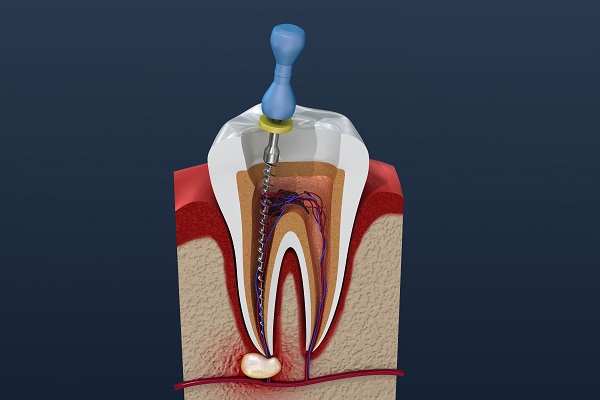How Is a Root Canal Performed?

Finding out you need a root canal may cause some nervousness and anxiety. This procedure is not something people look forward to. However, your dentist will have the knowledge and training to do it correctly and relieve the pain and discomfort you feel. It can also give you some peace of mind to know how this procedure works. In a single visit, your dentist can restore your oral health.
Conditions that require a root canal
Most people are familiar with the concept of this procedure, but some do not realize when it needs to take place. Often, the dentist will perform one when the patient has an abscessed tooth. This happens when bacteria cause an infection deep in the tooth. Severe cavities that are too large for a filling to repair may require this process as well. Patients who come to the dentist with a broken or cracked tooth may also need one.
The evaluation
Some patients may suspect they need a root canal because of intense tooth pain. The general dentist will confirm this need by examining the patient. The dentist will take X-rays to determine the extent of the problem and whether a root canal or filling will ease the pain. After recommending this procedure, the dentist will explain what the patient can expect, including the recovery.
Preparing the patient
When it is time for the root canal, the patient sits in the dental chair, and the dentist uses a local anesthetic to numb the affected area. This should block out any pain the patient would feel and helps them feel more comfortable. The dentist will place rubber dams around the tooth to keep it dry. Next, the dentist drills into the tooth in order to reach the pulp.
Removing the pulp and cleaning the area
The dentist will then remove the pulp, the portion of the tooth that contains nerves and blood vessels. Using a dental tool, the dentist then scrapes the sides of the canal to remove bacteria. Using a saline solution or other liquid, the dentist will then flush out any other debris in the canal. A disinfectant or medication will also be used to kill any leftover infection in the tooth.
The finishing touch
The root canal procedure ends with the dentist filling the hole and sealing it. This prevents bacteria from entering and causing more infection. It will also help stave off decay. The dentist may place a temporary crown over the affected tooth and have the patient return later when the permanent crown is ready. Some dentists begin preparing the crown ahead of time, so it is ready right after the root canal.
Know what is in store for you
Though getting a root canal can be intimidating, there is less pain than many people think. It can also calm your nerves to understand the step-by-step process. The good news is that this process is effective at cleaning infected teeth and protecting them from additional damage. If you have a severe toothache or swelling in your mouth, call your dentist to see what the next steps should be.
Request an appointment here: https://hemetdentalcenter.com or call Hemet Dental Center: Brian Stiewel DDS, INC. at (951) 707-4366 for an appointment in our Hemet office.
Check out what others are saying about our services on Yelp: Read our Yelp reviews.
Recent Posts
A tooth extraction is one of the most common dental procedures and also one of the most anxiety-producing. However, a dentist would not recommend this treatment if it were not necessary to protect your oral health. So, if you are nervous about an upcoming tooth extraction, understanding its reasons will help.A dentist will usually try…
A dental restoration is a treatment that rebuilds or replaces damaged tooth structure to restore full function and aesthetics. Whether addressing decay, fractures, or missing teeth, a dental restoration supports long-term oral health and helps preserve the natural smile. From simple fillings to more advanced solutions like bridges and onlays, each type of restoration offers…
Your dentist can suggest a tooth extraction. A thorough assessment can help determine if you need this procedure. The facts can help prepare you for your oral surgery. Here are the details on when a tooth extraction may be necessary.Periodontal disease is an infection of the structures that surround the teeth. Studies show that the…
You may need a tooth extraction to improve your oral health. Preserving teeth is the primary goal of dentists. But there are cases when removing the tooth is important in achieving good dental health. Here are the details on when it is necessary for one’s oral health to get a tooth extraction.Tooth extraction may be…


